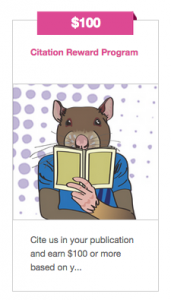People often talk about “trials transparency” as if this means “all trials must be published in an academic journal”. In reality, true transparency goes much further than this. We need Clinical Study Reports, and individual patient data, of course. But we also need the consent forms, so we can see what patients were told. We need the analytic code, so we can see exactly how the data were analysed. We need access to post-publication peer review, so we can see what design flaws others have identified. And we don’t just need these things to be publicly available, in some form or another: we ideally need them to be available as open data, freely shareable and re-usable, which is a very different kettle of ballpark. And then, of course, we need this data to be used, which means we need to think about building tools that make it useful. Finally, we can’t just whine about the world not being as we would wish it to be, or write academic papers describing the problem: we need a practical theory of change, and a set of clear strategies that will deliver greater transparency. This is my talk at the International Journal of Epidemiology Conference, 2016. It takes 29 minutes of your life, at speed: I hope you find it useful.




 Here’s a strange thing, a seedy curio rather than a massive scandal, but I’d be interested to know what you make of it. This week lots of academics all received the same unsolicited marketing email from a large well known research company called Cyagen, who make transgenic mice, stem cells, and so on. The email was headed “Rewards for your publications”. In it, Cyagen make a rather strange offer: “We are giving away $100 or more in rewards for citing us in your publication!”.
Here’s a strange thing, a seedy curio rather than a massive scandal, but I’d be interested to know what you make of it. This week lots of academics all received the same unsolicited marketing email from a large well known research company called Cyagen, who make transgenic mice, stem cells, and so on. The email was headed “Rewards for your publications”. In it, Cyagen make a rather strange offer: “We are giving away $100 or more in rewards for citing us in your publication!”.